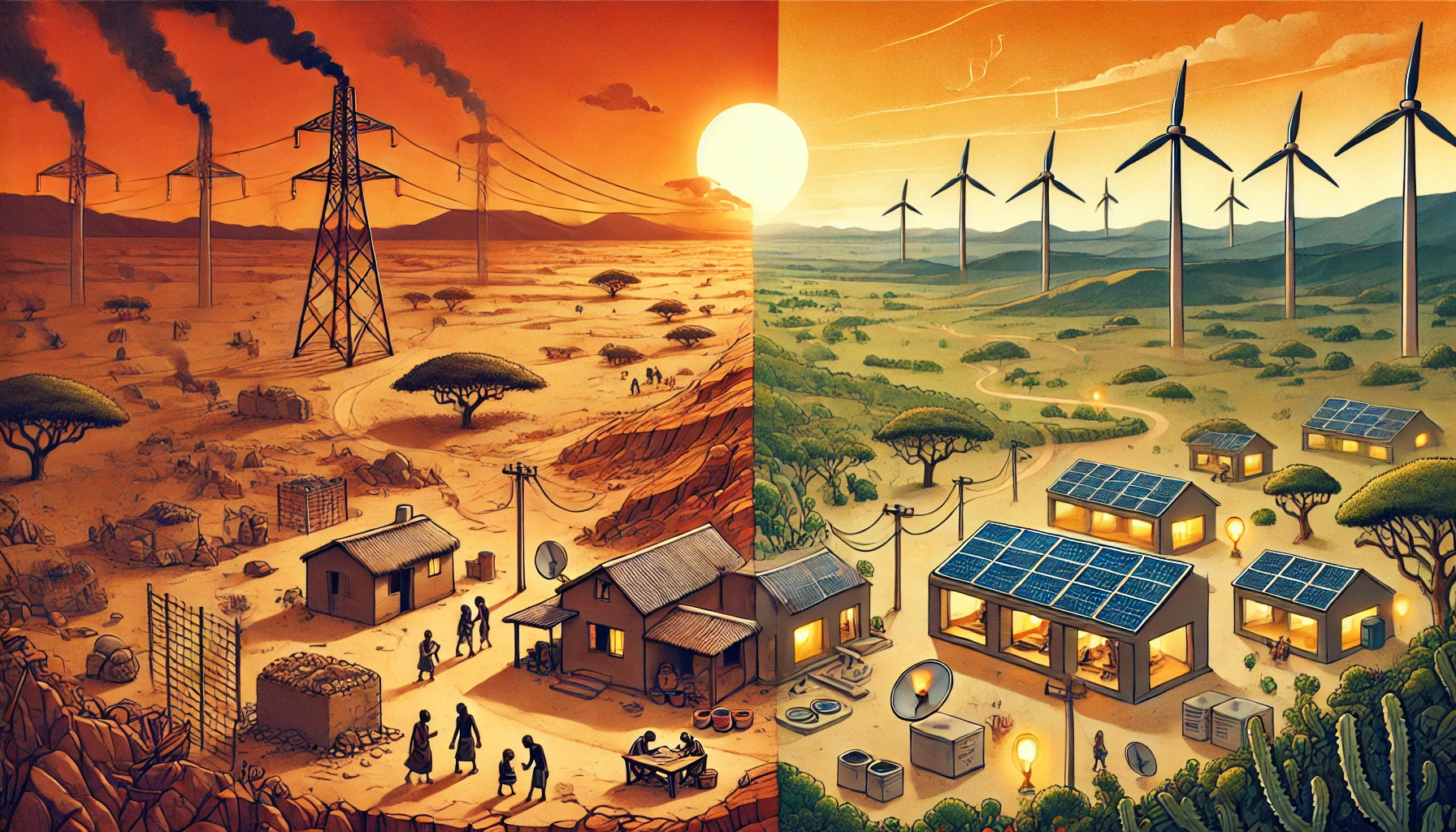The Role of Sustainable Energy in Improving Health, Education, and Well-Being in Africa
The study highlights how energy vulnerability significantly hinders human development in 27 African countries, affecting health, education, and overall well-being, particularly in Sub-Saharan Africa. It calls for investments in sustainable energy infrastructure, renewable energy, and policies addressing energy inequities to improve developmental outcomes.

Serge Temkeng Djoudji from the University of Buea and Stéphane Mbiankeu Nguea from the University of Dschang conducted a groundbreaking study on the role of energy vulnerability in shaping human development across 27 African countries between 2000 and 2019. Despite some improvements in energy access, millions of Africans remain affected by energy vulnerabilities that hinder developmental indicators like life expectancy, infant and under-five mortality rates, education, and human capital. Employing robust econometric tools such as Driscoll-Kraay standard errors, IV-GMM, and panel quantile regression, the study investigates these relationships, addressing statistical challenges like heterogeneity and endogeneity. The findings reveal that energy vulnerability directly undermines human development, particularly in Sub-Saharan Africa, where energy access and infrastructure lag significantly behind those in Northern Africa.
The Critical Role of Energy in Health, Education, and Livelihoods
Energy vulnerability manifests in several ways that severely affect people’s well-being. Healthcare systems are particularly affected as insufficient and unreliable electricity disrupts the functioning of medical equipment, vaccine storage, and essential care services. Poor air quality resulting from biomass cooking fuels increases the prevalence of respiratory illnesses, particularly among women and children. Education, too, is hampered by inadequate energy infrastructure. Without electricity, schools lack lighting and access to ICT tools, creating barriers to learning. Students in energy-poor households often struggle to study after dark, further widening educational disparities. These challenges also exacerbate cognitive developmental issues in children exposed to pollutants from traditional fuels. Furthermore, energy insecurity limits access to clean water and sanitation, increasing the risk of malnutrition, waterborne diseases, and poor hygiene, all of which reinforce cycles of poverty.
Sub-Regional Disparities in Energy and Development
The study highlights stark contrasts between Northern Africa and Sub-Saharan Africa. Countries in Northern Africa, such as Tunisia, Algeria, and Egypt, boast higher HDI scores due to more advanced energy infrastructure and governance systems. Conversely, Sub-Saharan countries like Mozambique, Niger, and the Democratic Republic of Congo face severe energy vulnerabilities, reflected in lower HDI scores and poorer health and education outcomes. For example, households in rural Ethiopia without electricity experience a 25% higher infant mortality rate compared to those with access. Such disparities emphasize the urgent need for region-specific policies to tackle energy challenges and improve human development outcomes.
The Socioeconomic Drivers of Human Development
Beyond energy vulnerability, the study identifies democracy, ICT, and industrialization as critical drivers of human development. Democratic governance fosters citizen participation and ensures accountability, leading to policies that address public needs and improve health and education outcomes. ICT has transformative potential, enabling access to information, remote work, and better service delivery, which contribute to higher HDI and life expectancy. Industrialization is another key factor, as it creates jobs, increases wages, and enhances access to goods and services. These factors collectively play a vital role in mitigating the adverse effects of energy vulnerability and fostering sustainable development across African nations.
Policy Recommendations for Sustainable Energy Solutions
The study offers actionable policy insights to address energy vulnerability. First, governments must prioritize investments in energy infrastructure, including expanding electricity grids, promoting renewable energy projects like solar and wind, and supporting off-grid solutions for remote areas. Energy efficiency regulations and incentives for adopting energy-efficient appliances and industrial processes can significantly reduce energy consumption and costs. The promotion of renewable energy sources can mitigate climate change impacts, reduce dependency on fossil fuels, and enhance energy security. Capacity building is equally important, as investments in technical training and community-based initiatives can empower local stakeholders and ensure sustainable energy practices. Policymakers are urged to integrate these strategies into national development agendas to address immediate needs while fostering long-term sustainability.
A Call for Comprehensive Action
The study underscores that energy vulnerability is not just an economic or technical issue but a significant obstacle to human development in Africa. Addressing it requires holistic, context-specific approaches that consider the interconnectedness of energy with social, economic, and environmental objectives. While the research provides valuable insights, it acknowledges limitations such as data constraints and the inability to explore all transmission mechanisms. Future studies are encouraged to expand datasets, analyze energy policies across diverse contexts, and investigate how specific energy sources affect human development. These efforts can provide deeper insights and inform more effective interventions.
By emphasizing the critical role of energy access in shaping health, education, and livelihoods, this research serves as a wake-up call for governments, development organizations, and stakeholders. Investing in sustainable energy solutions is essential not only for reducing energy vulnerabilities but also for achieving equitable and inclusive human development across Africa. As the continent grapples with these challenges, this study provides a roadmap for action, underscoring that addressing energy vulnerability is fundamental to unlocking Africa’s full developmental potential.
- FIRST PUBLISHED IN:
- Devdiscourse
ALSO READ
Punjab's Universal Healthcare Revolution: The Mukh Mantri Sehat Yojna
Kerala on Track for AIIMS: Suresh Gopi’s Vision for Healthcare and Development
Assured Arrival: AIIMS to Transform Kerala's Healthcare Landscape
Chhattisgarh's Healthcare Boost: New MoU to Develop Skilled Workforce
Ukrainian Drone Strikes Target Russian Energy Infrastructure










